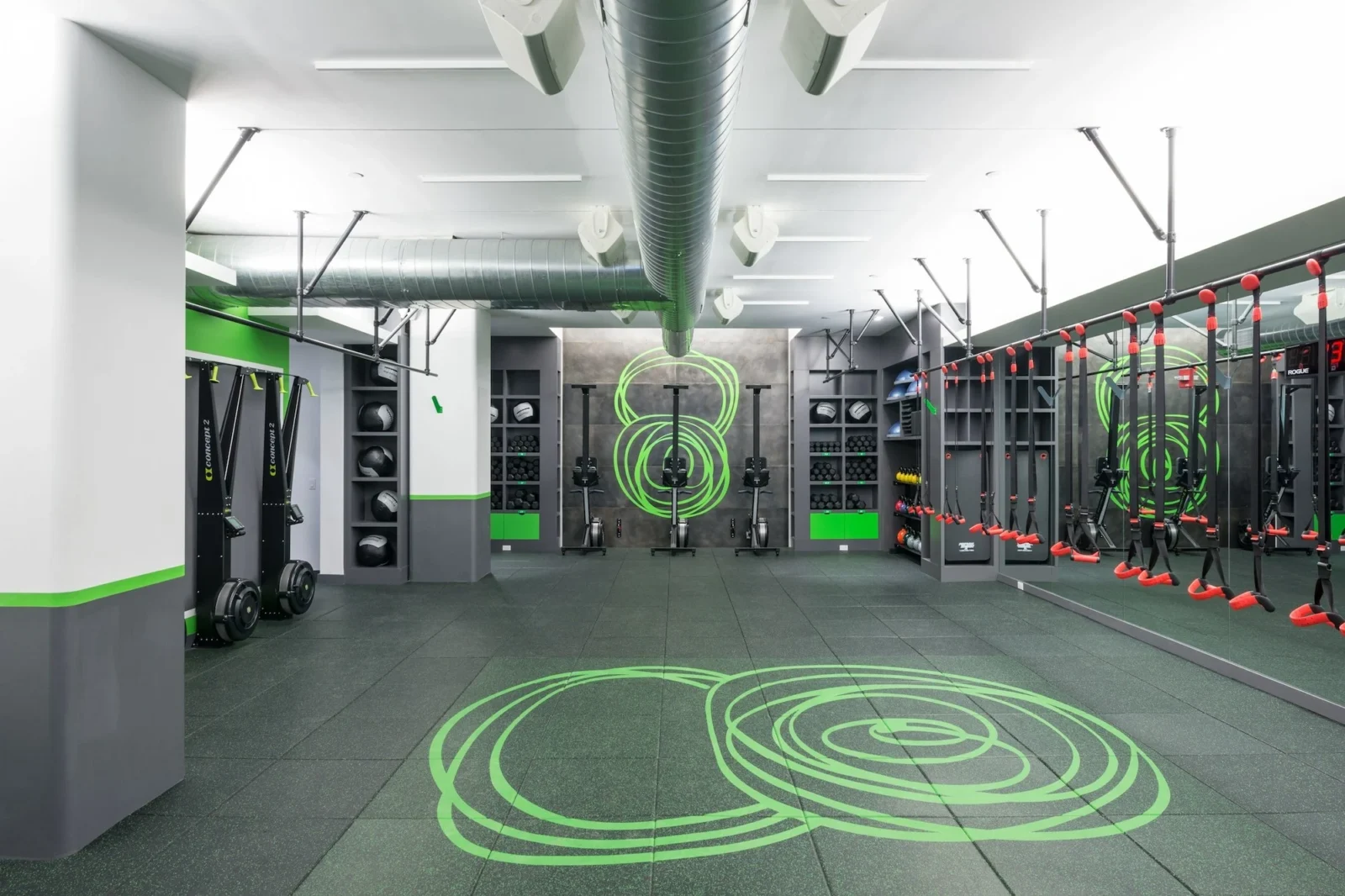Fhitting Room To Close Most Studios, Citing ‘Nearly Impossible’ Conditions

The kettlebell-focused HIIT brand cites “aggressive third-party” booking companies, increased competition and rising costs as reasons for its decision to close 3 of 4 studios
Fhitting Room will close its three New York Sports Club-based studios in Manhattan’s Chelsea and Upper East Side, and Washington DC’s DuPont Circle, at the end of the month, stating that the business has become a “nearly impossible equation to solve” just over a year after the brand celebrated its tenth anniversary and announced it would open the NYSC outposts.
NYSC acquired the HIIT and strength-based boutique fitness studio brand in 2022. Fhitting Room’s Upper West Side location will remain open and classes are still available at New Jersey’s Drop Fitness.
Fhitting Room made a post on social media announcing the news of the June 30 closures with a message from its founder, Kari Saitowitz, and president, Elspeth (El) Montgomery.
“Over the years, the world around us has changed profoundly,” wrote Saitowitz and Montgomery. “An explosion in competition has led to more promotions, while aggressive third-party booking companies have changed the way many clients book and buy classes; the result is significantly less revenue.”
Fhitting Room also noted that the pandemic “permanently altered daily patterns,” making early morning and late evening classes a “relic of the past.”
“Simultaneously, substantial increases in overhead costs and astronomical increases in operating expenses have created a chasm too big to close,” the message continued.

Despite Fhitting Room’s commitment to streamlining overhead and cost reductions via its partnership with NYSC, Saitowitz and Montgomery wrote that the efforts aren’t enough to compensate for larger forces.
The fitness brand also has a digital presence with live virtual and on-demand classes.
The Boutique Fitness Conundrum
Fhitting Room’s downsizing isn’t uncommon for boutique fitness brands in the pandemic and post-pandemic environment. Physique 57, a Barre fitness concept, quickly pivoted from in-person fitness experiences during the pandemic in favor of online content before opening new studios in New York, New Jersey and Pennsylvania and keeping a virtual Barre studio.
Despite fitness influencers driving boutique fitness trends for young consumers, the industry can be fickle. Pilates is hotter than ever, while other modalities seem to be struggling. Xponential Fitness, the leading boutique fitness franchisor, recently offloaded both Row House and Stride Fitness as part of a restructuring plan.
As for Fhitting Room’s beef with third-party booking platforms, one fellow New Yorker is listening.
Joseph Foley, boutique fitness trainer and co-founder of Pedal House, is launching PowerPass, a revised fitness and wellness booking system that prides itself on being equitable. Unlike other booking platforms, PowerPass includes a revenue-sharing model, allows studios to control pricing and provides a fair review system that thwarts false reviews.
The platform is expected to launch fully this year, and a waitlist is available for early access.
Correction: A previous version of this article incorrectly stated that Fhitting Room’s social media announcement was co-authored by Liz Benjamin. Benjamin left Fhitting Room in March.
Courtney Rehfeldt has worked in the broadcasting media industry since 2007 and has freelanced since 2012. Her work has been featured in Age of Awareness, Times Beacon Record, The New York Times, and she has an upcoming piece in Slate. She studied yoga & meditation under Beryl Bender Birch at The Hard & The Soft Yoga Institute. She enjoys hiking, being outdoors, and is an avid reader. Courtney has a BA in Media & Communications studies.



